OpenAI has launched GPT 5.2, a major model upgrade now available in both the API and ChatGPT. It is described as the company’s most…
Sony Xperia Z5 Compact review: bright-eyed but blinded by its legacy
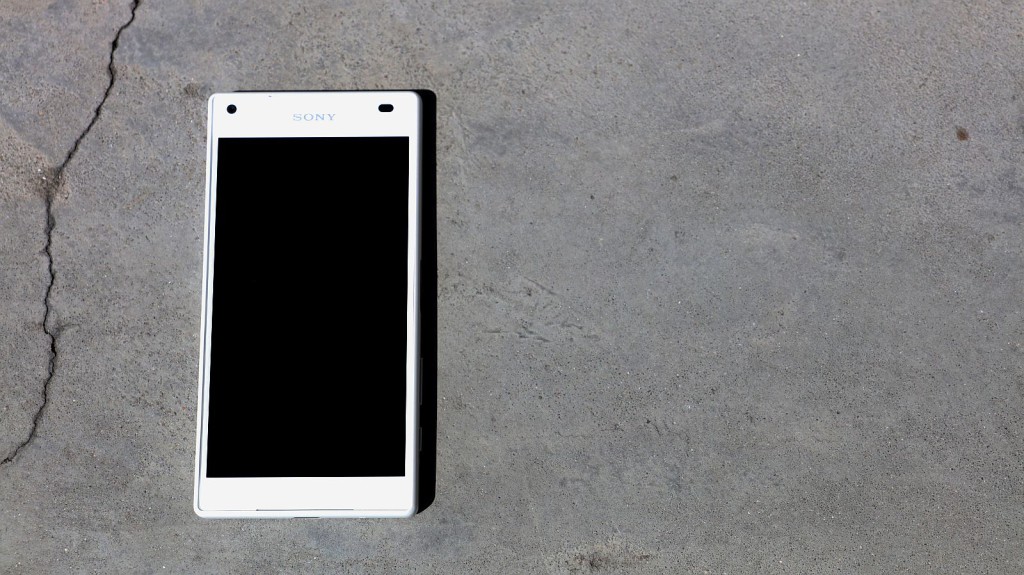
I imagine that it’s difficult for any company to go beyond and create a product even better than its best. It’s what Apple aims to do each and every time it launches a new iPhone, and it’s what HTC has been struggling with since the launch of the HTC One M8.
But another company that’s seemingly swimming well beneath the radar is currently toiling with this very issue: Sony.
Now, without a doubt, the Sony Xperia Z3 Compact was the best phone of 2014, and possibly the best Android phone ever made. I love it so much that I’ll probably name my first born after it. It’s a splendid phone, and does everything it says on the tin, and more, and then some more after that.
Read more: Sony Xperia Z3 Compact long-term review: sexy, submersible, sensational
So when Sony skipped the international launch of the Sony Xperia Z4, and jumped straight into the Z5, our eyebrows were firmly raised in the office.
“What’s the deal with that, Sony?” the cries echoed around, with “It’s probably wondering how on earth it’s going to best the Z3,” following soon after from my desk.
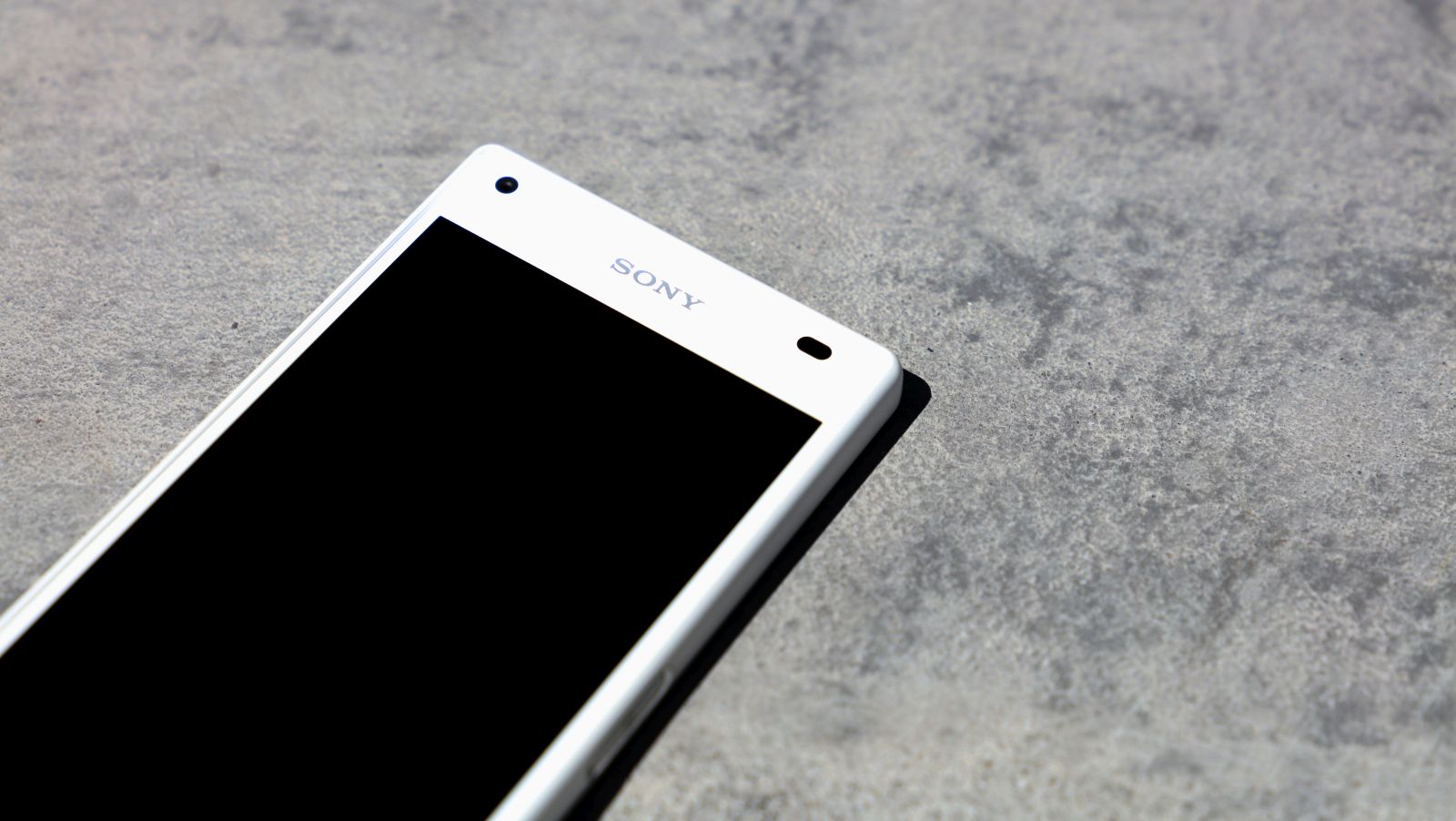
But to be brutally honest: how on earth can you design, manufacture and then sell something that claims to be better than your best? That’s largely what the Sony Xperia Z5 Compact’s problem is: the legacy of its older siblings.
Unboxing
Before I leap right into the review, just a word of caution: the Sony Xperia Z5 Compact does actually come with a charger and charging cable, but none of these were present in my review package. Instead, all I got was the phone. Great start, there. I thought that the phone actually arrives with earphones included, but it doesn’t. The same goes for the larger Sony Xperia Z5.
Nevertheless, whipping my Samsung charger out from my bag along with my LG cable, I promptly wafted the Z5 into life.
All in all, it’s a boring Sony smartphone box, which doesn’t quite hold the device snugly within either, but the phone wasn’t broken when I received it so it’s doing something right.
Design and aesthetic
Once the device is slid out of its housing, one thing’s immediately noticeable about the phone: it’s thickness.
In 2015 smartphone terms, it’s a doorstop. Fat is what I’d use to describe it, and not in a hip-hop sort of way either.
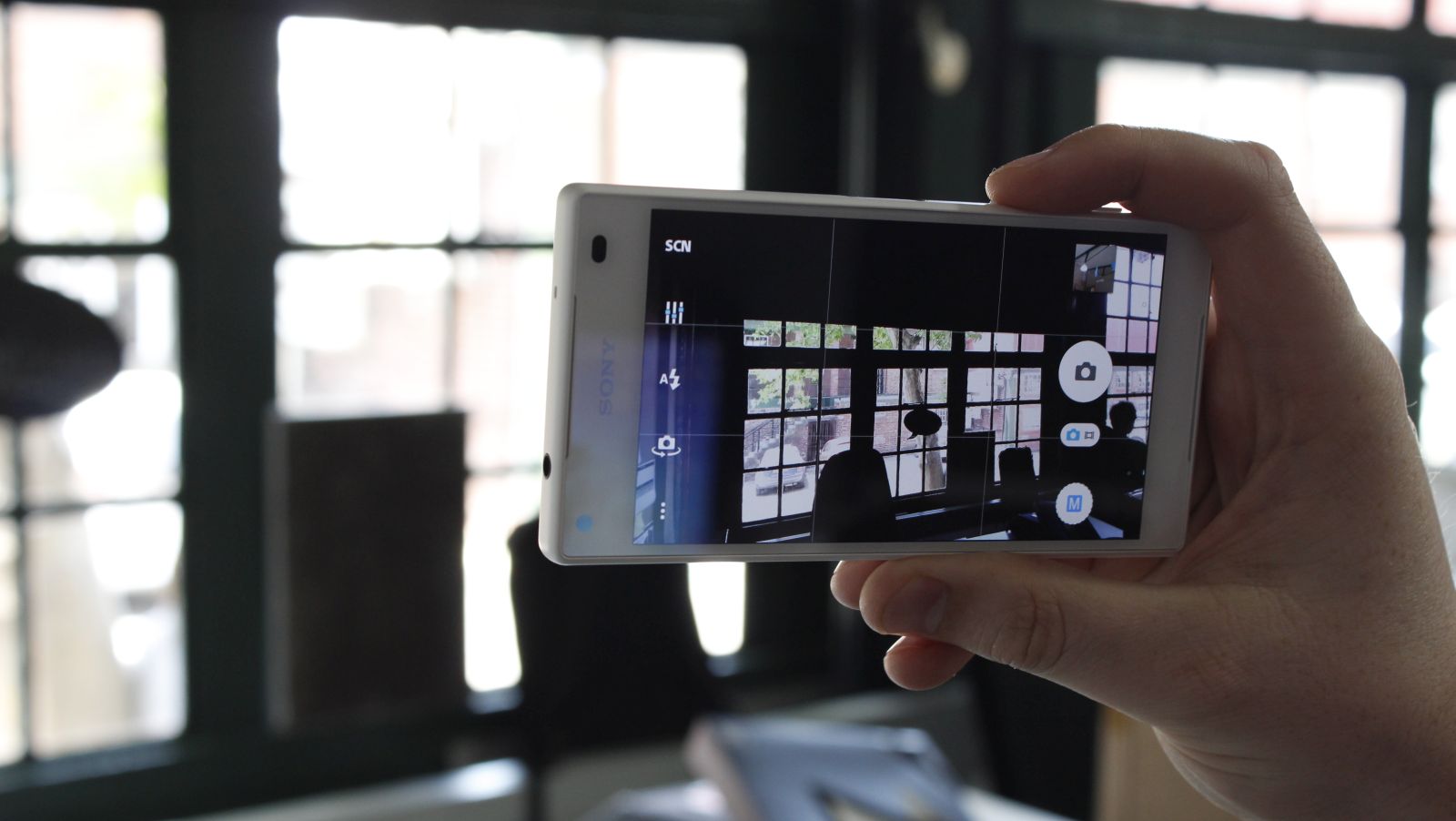
The side effects of this really is as follows: it stands out in a pocket like a fridge on the back of an open bed truck, and thanks to the relatively sharp corners, it doesn’t sit comfortably in said pocket either. It does however let Sony improve upon its water-resistant IP68 rating (this is explained below), something that Sony should never discard from its devices.
There’s some slightly refreshed styling cues used on this phone too, including a speaker gap on the bottom left (edit: it’s actually a lanyard loop, something we haven’t seen on a phone in ages), and thanks to the deeper sides a large flap that protects the microSD card and SIM card inlets is used. There’s also a 3.5mm jack up top. But the most interesting side of the phone’s on the right. Why? Sony’s finally adopting a fingerprint reader in lieu of the iconic circular power button. The power button is now the fingerprint reader, while the volume rocker and camera shutter button sits alongside it.
Finally, at the bottom, we have the microUSB charging port, which is now completely water-repellent and doesn’t require an unsightly, easily-broken flap.
Essentially, this phone still loves being in water
In terms of the device face-on, it hasn’t changed much from the Z3 Compact at all.. It’s still 4.7-inches, but with thicker bezels now housing the 5.1MP selfie camera and light sensor alongside it. At the rear, there’s a 23MP sensor camera, with a single flash and a shiny Sony logo in its heart.
Overall, it’s not the ugliest phone on the market, but it’s not going to win any beautify pageants either.
Internals and specifications
There’s one distinct difference between the Z3 Compact and the Z5 Compact: power. And that’s thanks to the speed at which supporting companies are developing hardware.
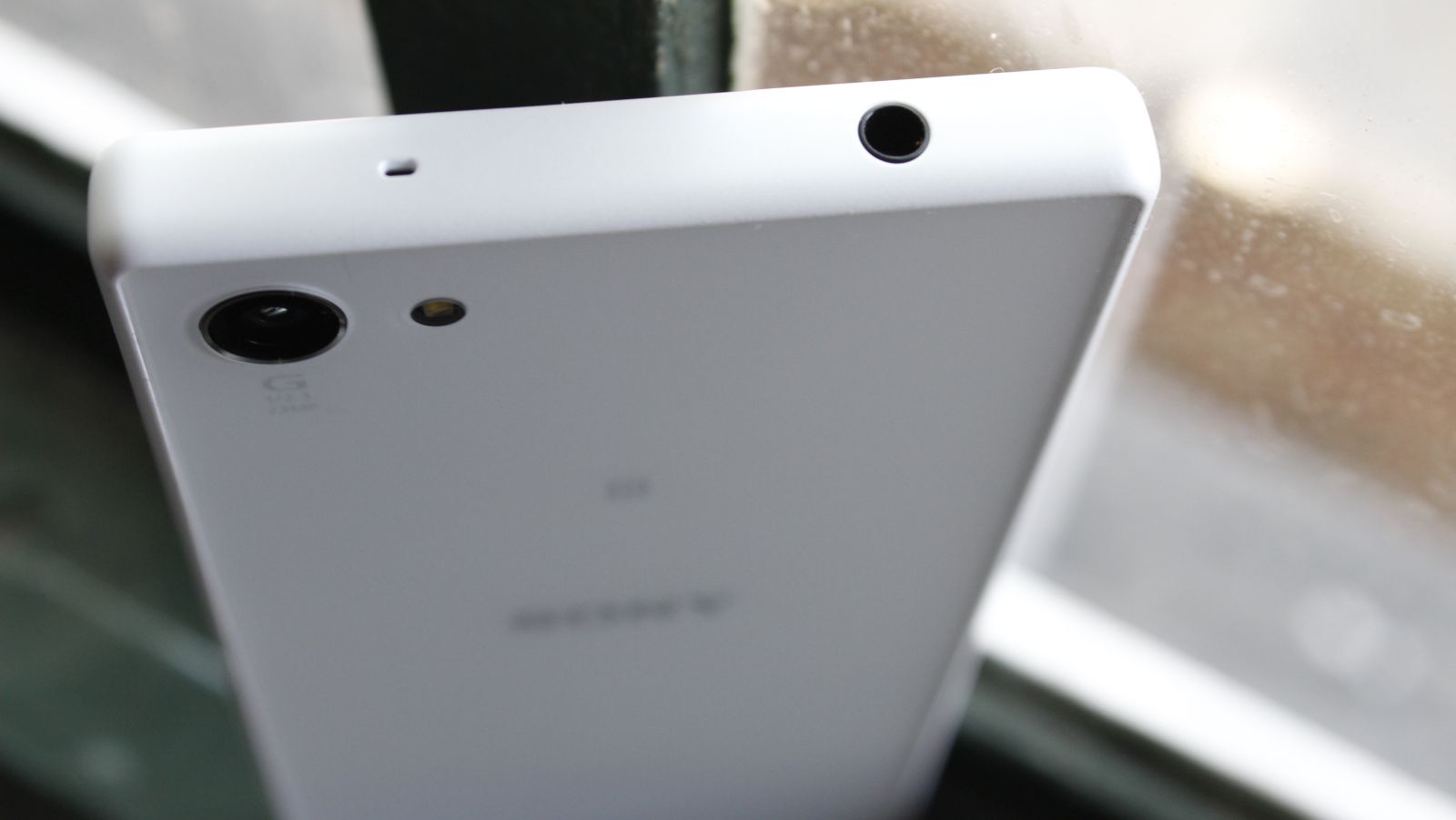
The Sony Xperia Z5 Compact features the infamous Qualcomm Snapdragon 810, with 2GB of RAM and 32GB of internal storage. Those specs, although modest at first, is absolute overkill when adding this: the screen resolution hasn’t budged one bit from the Z3 Compact’s 1280×720 resolution.
Key numbers:
Dimensions: 127mm x 65mm x 8.9mm
Weight: 138g
SIM Type: Nano SIM
Display: 4.6-inch, 1280×720, 323ppi
Chipset: Qualcomm Snapdragon 810 octa-core | quad-core Cortex A53 1.5GHz & quad-core Cortex A57 2.0GHz | Adreno 430 GPU | 2GB RAM
Storage: 32GB (Around 22GB usable), microSD card expansion up to 200GB
Imaging: Rear: 23MP, f/2.0 aperture, six-element 24mm lens, phase detection autofocus, LED flash and shutter button | Front: 5.1MP
Video: 4K at 30fps; 1080p at 60fps; 1080p at 30fps
Battery: 2700mAh fixed
Android: 5.1.1 Lollipop
Further digging also reveals a 2700mAh battery that’s fixed to the chassis which powers the phone well into the night. We’ll get onto this later. For now, I do want to mention Sony’s new camera sensor.
The 23MP snapper at the rear was reported to be 25MP, but can only make use of 23 thanks to a design anomaly. It’s a complicated affair. But what’s interesting about it though is it’s performance in almost every situation. Day. Night. Nightclubs. High teas. 60th birthday parties. The works. It’s absolutely stellar.
It’s a pity that the screen doesn’t do the videos or images justice
This is even with the 24mm f/2.0 lens, which isn’t as great at the smartphone camera king and queen: the LG G4’s and the iPhone 6S.
Before we get too carried away though, we should add that the Z5 Compact comes with all the wireless creature comforts we tend to expect in a flagship phone, from WiFi 802.11 AC to WiFi Direct, NFC and Bluetooth 4.1 LE. Everything’s accounted for. Even LTE.
Performance
But you probably want to know how fast it is, right? Well, it’s brisk.
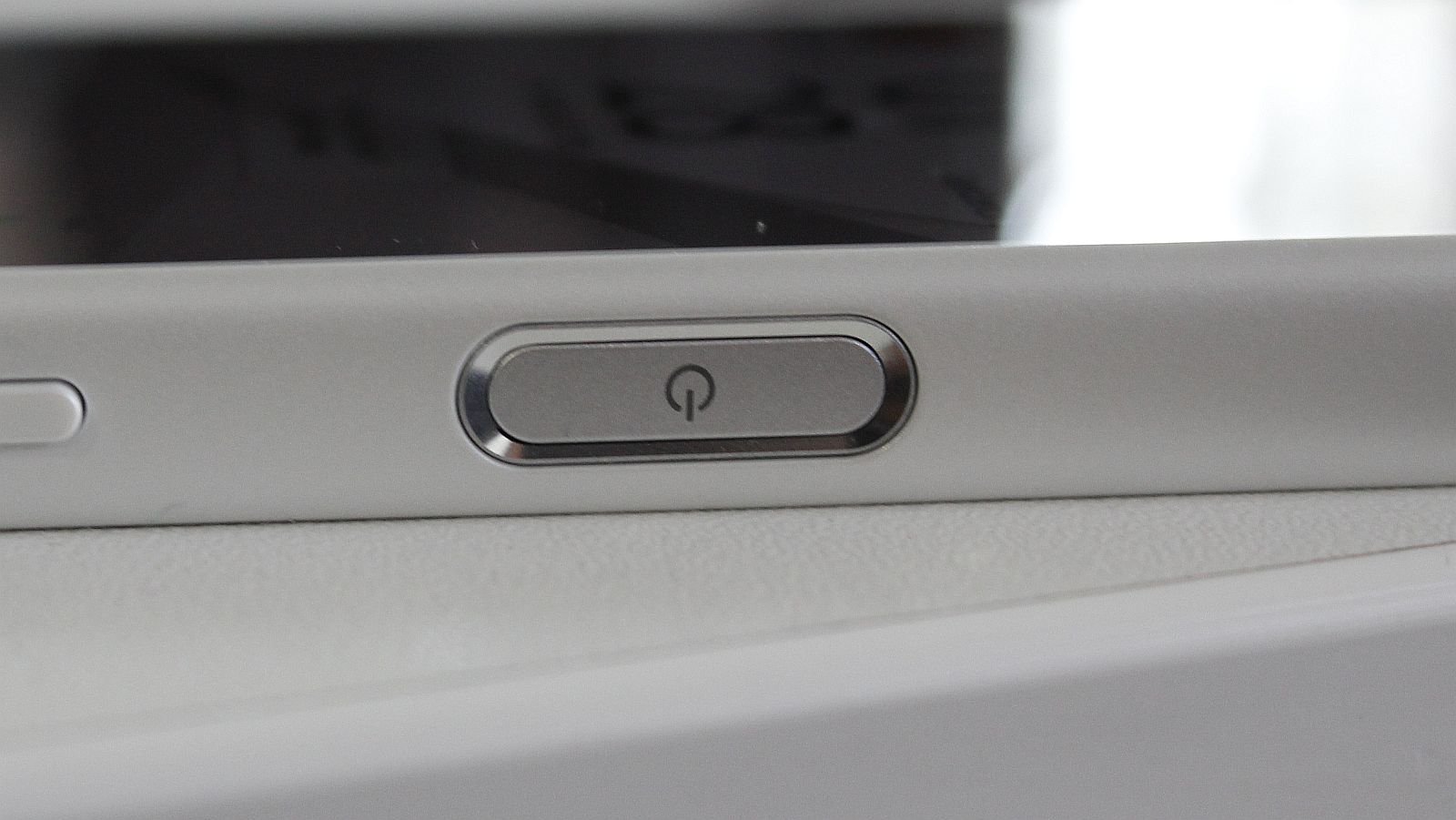
It’s no Samsung Galaxy S6 beater though, and constant benchmarking reveals that Sony has managed to tame the manic Snapdragon 810 well enough to achieve the same Geekbench score after four continuous runs. The internal temperature only hit 41°C during its efforts.
With that sort of speed and Sony’s obvious gaming pedigree, it’s obviously one of the big advantages with this phone. It can definitely keep up with practically anything thrown at it, with even the most demanding titles running smoothly (the Manhattan benchmark is a good indication of this).
Benchmark results:
AnTuTu 5.7.1: 66 171
Geekbench 3 Performance: (Single core) 1395 (Multi core) 4517
Geekbench 3 Battery: (Total time) 6h02:30 (Score) 3625
GFXBench OpenGL 3.1: (Manhattan 3.1) 2332 frames, 38 per second; (T-Rex) 3224 frames, 58 per second
While we’re on gaming, we should probably talk about content production because it’s the other real selling point of this phone.
The Z5 Compact’s camera sensor easily one of the greatest fitted to a mobile device. It responds well to all lighting conditions, balances colours well and doesn’t wash out the scenery when snapping portraits in bright light.
It’s near flawless
And the selfie camera? I don’t think I’ve used one that’s this good, bar perhaps the LG G4. Point. Shoot. Boom. It just works. And thanks to the wide angle lens, you could easily get a family of around twenty into one shot without much of an issue.
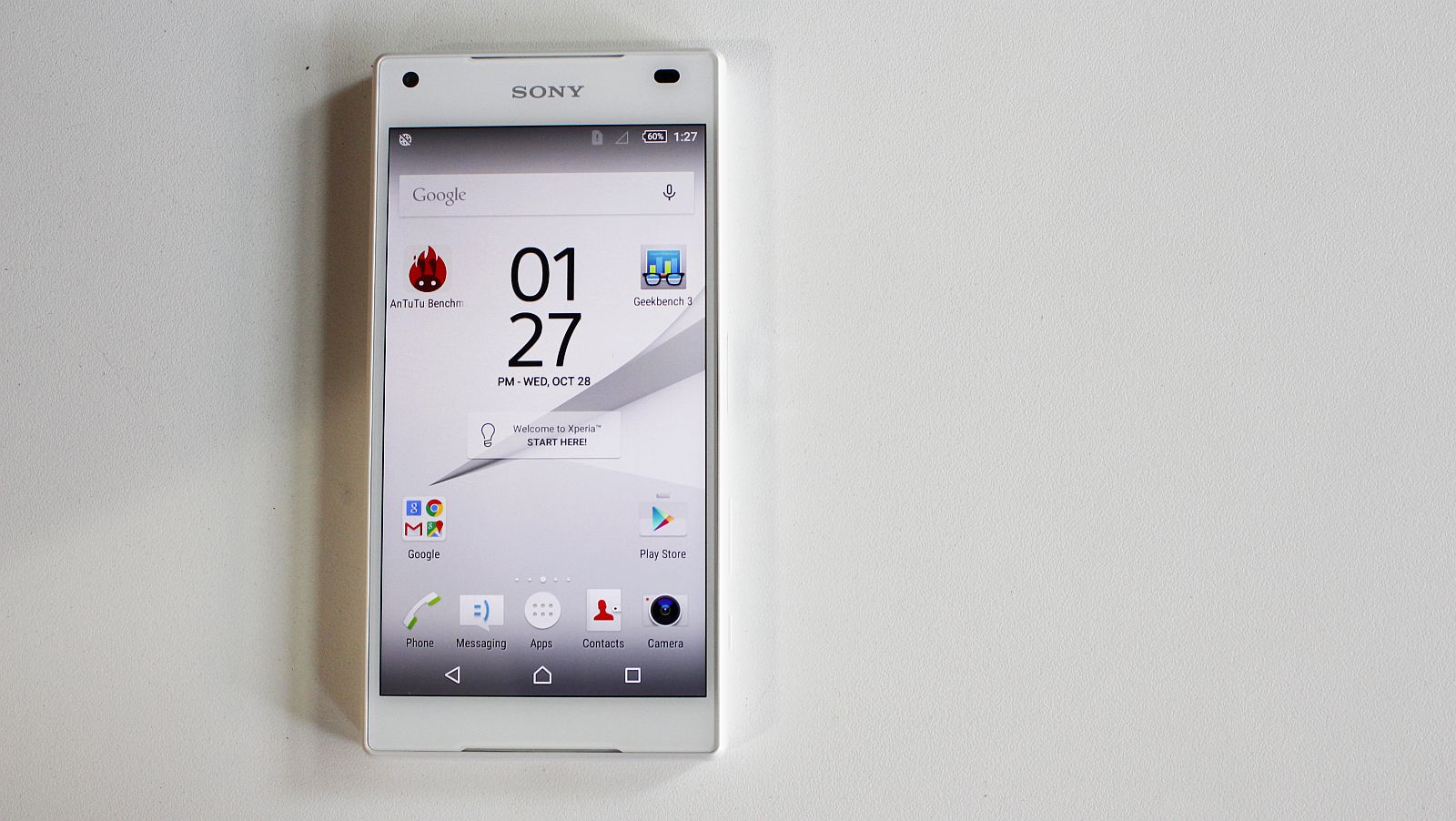
4K recording can be done at 30fps, or what’s considered the de facto mobile standard right now. If you happen to have a 4K TV, you can watch these videos in unadulterated pleasure. I did regularly snap videos in 1080p at 60fps, and they look damn professional (not tooting my own horn here). You’ll be glad to note that the phone didn’t really get too hot when using the video mode, but I didn’t record any videos longer than three minutes.
It’s a pity that the screen doesn’t do the videos or images justice.
Gallery: We tour the V&A Waterfront with the Sony Xperia Z5 Compact
Overall, snapping individual pictures is a pleasure too, but it somehow wasn’t as fun as the Sony Xperia Z3 Compact. Call it a honeymoon, but the month I spent with the Z3 Compact was photography heaven only when viewing the images on a larger screen.
The Z5, although sporting better hardware, does have a few issues that aren’t apparent on first inspection.
Software and usability
And one of them is the OS.
The Sony Xperia Z5 Compact is the buggiest phone I’ve used in a long, long time, overtaking practically all other Android devices in the process.
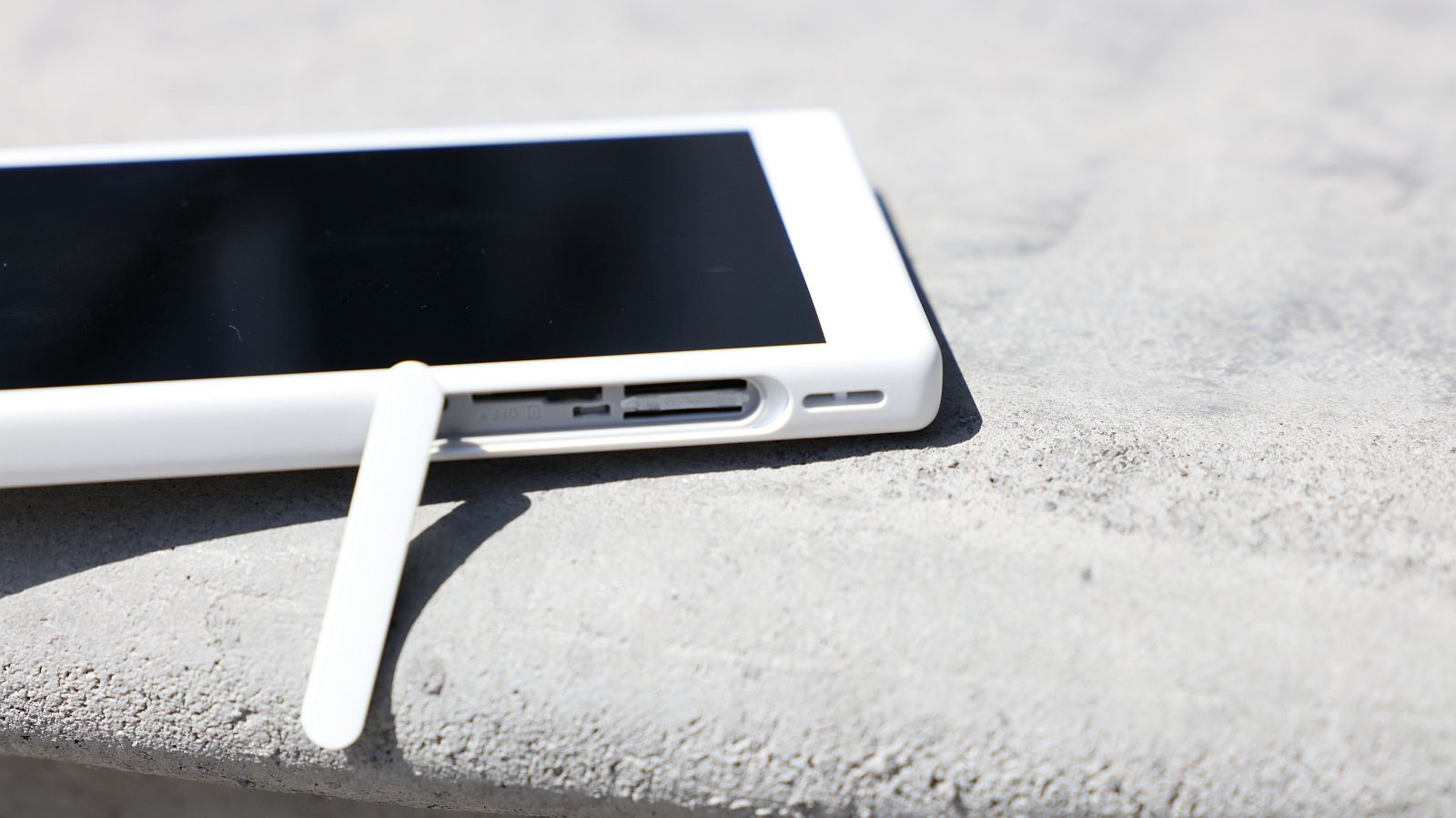
There’s a particularly stubborn bug that disables all bottom level navigation buttons when you’re in the camera app. You can’t exit the app. You can’t call up other apps. You can’t return to the home menu. All you can do is switch it off or bung it against a wall (I did the latter in my mind a dozen times).
Other bugs, or annoyances rather, includes the default Android primary settings drop down, which I’ve grown to hate. I can’t directly blame Sony for this — because it’s Google that ruined it since KitKat — but the company chose to stick with it regardless.
I do hope for Z5 Compact buyers that this was an issue exclusively pegged to my review unit, and not the entire fleet.
It’s difficult to make Android a buggy mess, but somehow Sony’s managed to do it
Finding settings is a nightmare too.
The 4K recording mode isn’t in the video app, but rather selected in a “special mode” segment which houses all other camera specialties, like panoramic shot, slo-mo, etcetera. Idiotic. More idiotic still is the missing adaptive brightness switch on the main settings drop down. If you want to turn if off, you’ll have to navigate to settings, find the Screen option and wade through the options there. It should be one tap, Sony. Not five; especially if I want to snap a fleeting image as quickly as possible.
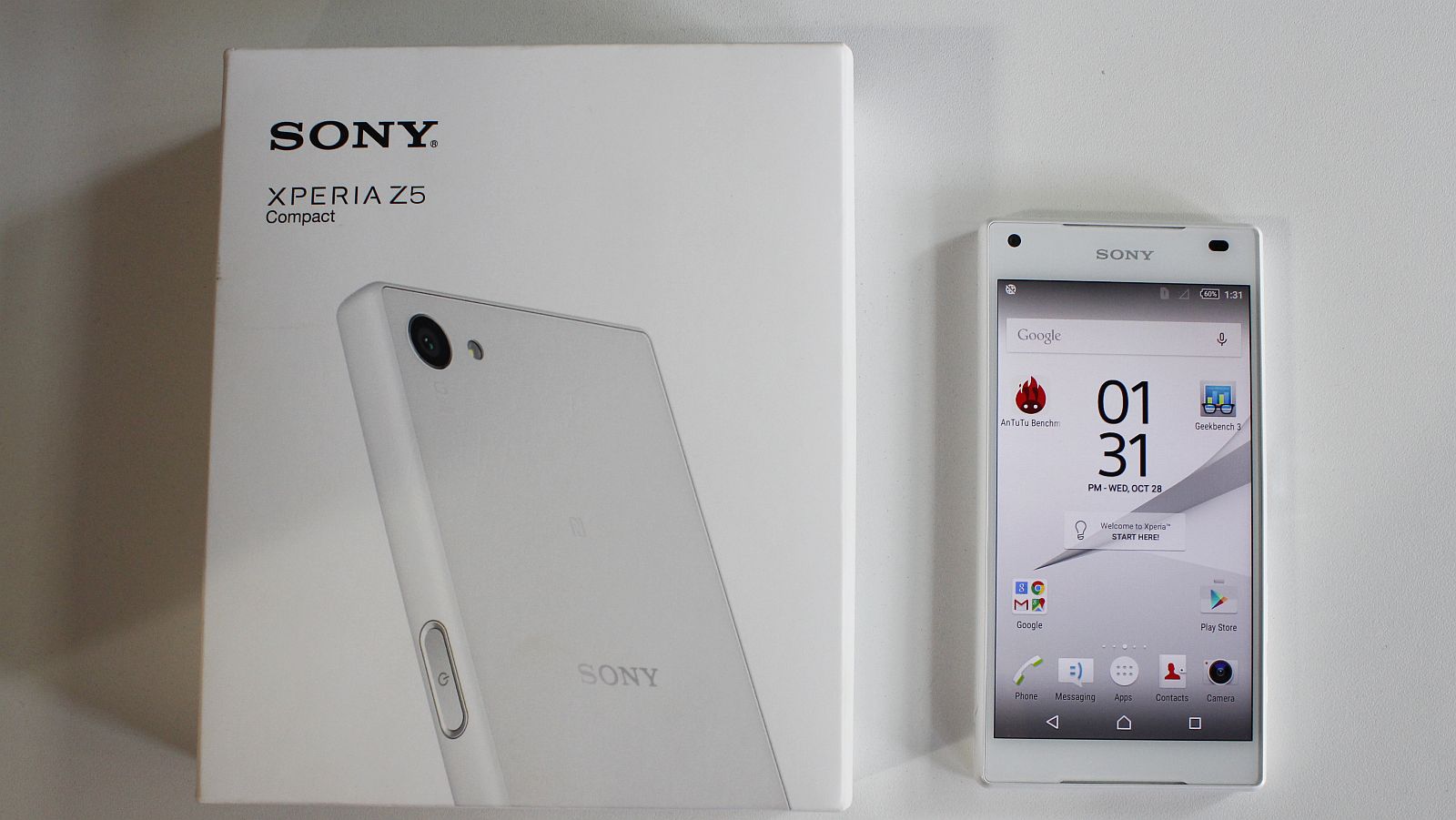
The fingerprint reader, luckily, is a one touch affair and logs the user in within two seconds. Actually, perhaps it’s even quicker than that. It’s comparable to Apple’s TouchID system in speed, but is more comfortable for right handers (thanks to its location on the right-hand side of the phone). It’s a welcome addition, and all devices really should have a fingerprint reader in my opinion, but I wonder what the premium is on its addition.
Practicality
Overall, if you can look past the software atrocities, it’s one of the more practical flagships available. It’s a nice size for the average sized hand, and it can live with you through your water escapades. Mud? No problem either.
I haven’t dropped the device yet, but I imagine that the polycarbonate shell should hold up well against the cold, hard ground.
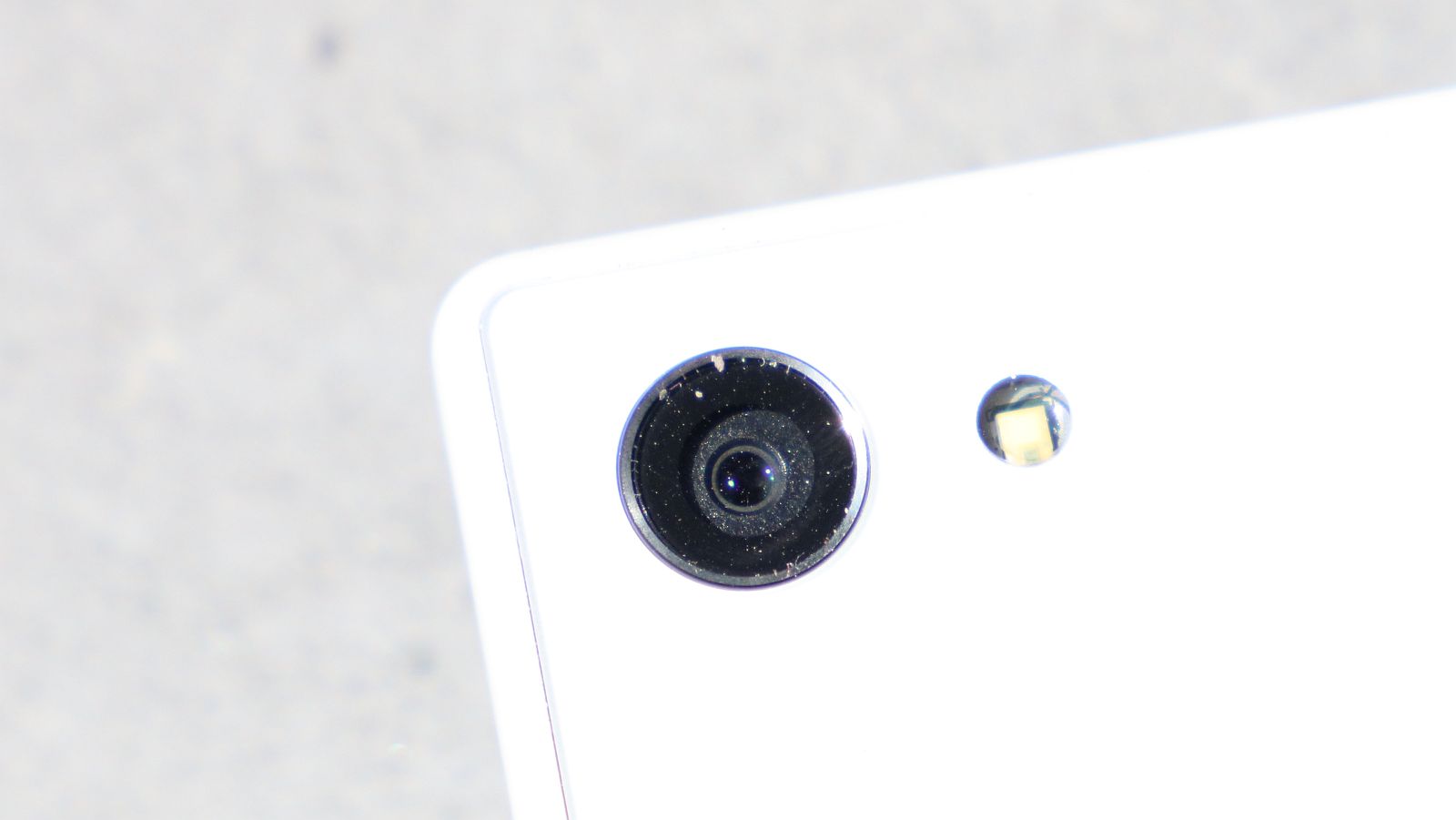
And beyond that, you definitely have a phone here that’ll last all day. Battery benchmarks don’t quite take into account Stamina Mode — the piece of code that really has earned Sony my trust in recent years. With it enabled, the battery just goes on, and on, and on, and on. It throttles the device, kills unneeded services and staggers internet communication to save battery. And it works.
With it enabled, the battery just goes on, and on, and on, and on
Overall, it’s a small phone, but that’s probably the reason why many choose the compact instead of the Z5 proper, not an actual disadvantage design-wise.
Value for money
But here’s the real problem: it’s price in light of the Sony Xperia Z3 Compact’s recent price drop. The latter can be had now for under R6000. The Sony Xperia Z5 Compact is closer to R9000.
Main competition:
iPhone 6S: R11 649
Sony Xperia Z5 Compact: R8799
Huawei P8: R6999
HTC One Mini: R5199
Sony Xperia Z3 Compact: R4999
The gulf between these two devices is more like a strait, or a small stream for that matter. The Sony Xperia Z3 Compact might be celebrating its second birthday soon, but it remains a great phone.
The only differences between these two devices is the camera (which in some cases is actually negligible) and the fingerprint sensor. Beyond that, you’d have to know your Sony phones well, or be an absolute numbers junkie, to spot the differences.
Verdict: I have an affinity for Sony phones, but the Sony Xperia Z5 Compact didn’t set my fanboy heart alight. The camera is brilliant, the fingerprint reader is more reliable than the Samsung Galaxy S6’s and the waterproofing Sony adds alongside is always a plus. But is it worth R9000? With other devices sporting better specs, better performance and more user friendly software, I can’t quite see any reason to get the Z5 Compact. There’s especially no point in upgrading if you’re using the Z3 Compact.
Score: 7.5/10


